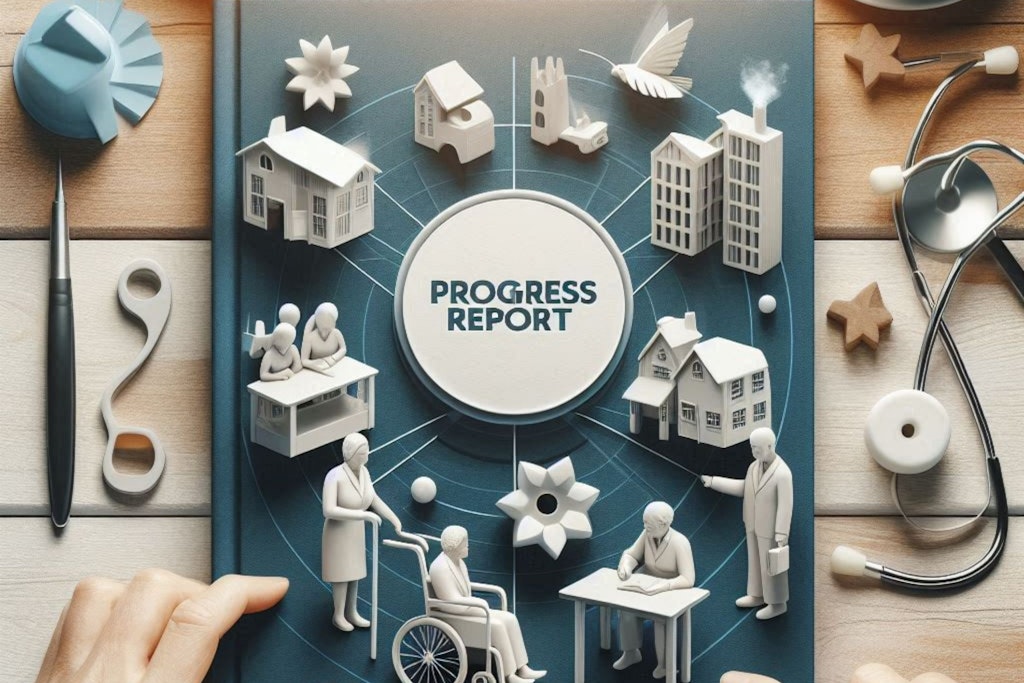Inspector-General releases milestone Royal Commission Progress Report
Published on 5 August 2024 (Last updated on 3 September 2024)

A key milestone for the Acting Inspector-General of Aged Care (Inspector-General), Ian Yates AM, has been reached following the release of his first report on the progress in implementing recommendations from the Aged Care Royal Commission into Quality and Safety.
More than three years have passed since the Royal Commission published its final report and 148 recommendations. In his review, Mr Yates looked at the implementation of all recommendations as of January 1, 2024, while also noting any future measures that have been announced.
“The Inspector-General acknowledges and commends that much has been done to improve the aged care system in the three years since the Royal Commission delivered its final report, and that more is underway or planned,” the Office of the Inspector-General of Aged Care said via a statement.
“However, the report also found that many older Australians continue to experience challenges in understanding and accessing quality aged care.
“The Report underscores the need for the government to implement a new, needs-based and demand-driven approach to aged care provision, and a seamless new aged care program, as recommended by the Royal Commission.”
The Report features several recommendations, spurred on by the need to ensure no more delays to the new Aged Care Act and Support at Home program occur. Key recommendations call on the Government to:
- Introduce a more seamless, demand-driven aged care system
- Improve people’s understanding of aged care to ensure they can readily access it when needed
- Ensure the system delivers high-quality, enablement-focused care to all
- Ensure sustainable provision of care that meets people’s preferences and diverse situations
- Improve integration between the healthcare and aged care systems
Mr Yates also urged the Government to finalise the new Act Care Act, provide more funding for home care, and recognise where elements of the reform agenda unintentionally create perverse incentives or outcomes. Other suggestions and thoughts are noted below.
Access and navigability
Following his assessment of the aged care system, the Inspector-General said a paradigm shift is required to create a seamless aged care program with access to care as an entitlement based on assessed need.
Currently, he believes that access to care is rationed and the system itself is letting down older people with assessed needs. Coupled with a lengthy assessment process in My Aged Care, delays in being assessed and receiving care are prevalent.
“The Inspector-General considers there is a pressing need for Government to provide more active face-to-face support for people seeking aged care. Initiatives such as ‘care finders’ and Services Australia’s Aged Care Specialist Officers are sound but too narrowly focused or insufficiently resourced to meet peoples’ needs,” the Report stated.
“Similarly, star ratings – an important and useful initiative – require further development and expansion into home care to provide the level of assistance the Royal Commission envisaged for older people.”
Workforce development
The Inspector-General said that reforms are slowly progressing in the workforce space and additional reforms need to be expedited to address system workforce issues. Limited activity in the allied health and general healthcare spaces is also a concern.
A key recommendation is for the Government to consider greater reliance on Enrolled Nurses (ENs) and Assistants in Nursing (AINs) to increase care minute requirements.
Additionally, he supports the Department of Health and Aged Care initiating a review on AN-ACC and the focus on delivering the required care minutes and the provision of allied health in residential care settings. One suggestion is for the Department to look at a legislating requirement for providers to spend all their care subsidy on the provision of enablement-focused care.
Widespread improvements
Three areas of improvement emerged from the Report, including improved access to respite care, improved dementia support and improved access in regional, rural and remote communities.
More comprehensive information about the availability, use and unmet demand for respite care should be publicly available to help older people and their carers find and access it. Additionally, respite provision should be increased with more funding and supply essential.
As for dementia support, the Inspector-General recognised the work that has been done to raise dementia care standards. However, he would like to see further strategies to improve access, including a potential ‘national baseline’ to ensure dementia pathways exist across Australia.
Strategies and tangible actions are needed to improve the workforce in regional, rural and remote Australia. An assessment of the Base Care Tariff should occur to determine its sufficiency, while there is hope the influence of Independent Health and Aged Care Pricing Authority (IHACPA) on AN-ACC will result in more appropriate funding.
Designing for Diversity
Meanwhile, the Inspector-General notes that improvements have occurred to help older people from diverse backgrounds, but he believes more needs to be done to ensure people from diverse backgrounds are welcome in aged care settings, that they feel accepted, and their specific needs are recognised and met.
“Although ‘person-centred’ has been the mantra of many in aged care for some years… the evidence suggests that this is still not how most of the system and services are designed. Many services may be increasingly person-responsive, but they are not yet, as a rule, person-centred,” the Report stated.
“The Inspector-General believes it is critical the reforms of the aged care system support a redesigned system devoid of assumptions of ‘mainstream’ and ‘diverse’ approaches to care. The system must be genuinely ‘each-person’ focused and designed.”
Similar requirements are necessary for First Nations Australians in aged care. He said current commitments to improve cultural safety and the adoption of trauma-aware and healing-informed care principles and training are important.
However, broader consultation from the Government is required, as is a clearer understanding of their “strategic vision” about the future of aged care for First Nations Australians.
All Progress Report documents can be viewed here.